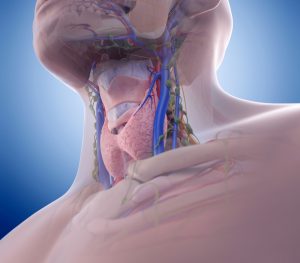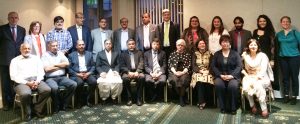Laryngectomy: rehabilitation and surgical voice restoration (Advanced Level)
Leading experts Yvonne Edels and Margaret Coffey recently delivered another successful advanced level Laryngectomy course for speech therapists.
The course is a joint venture between Imperial College London (ICL) and Imperial College Healthcare NHS Trust (ICHT). It is specifically designed for speech and language therapists (SLT’s) who have specialised in the field of Head and Neck Cancer, specifically cancers leading to laryngectomy (removal of the larynx). Course applicants must have previous working experience in the field. Numbers are limited to around 30 delegates to maximise the learning experience.
The focus is on surgery for standard laryngectomy and options for extensive surgical reconstruction; changes to the anatomy and physiology, their effects upon breathing, swallow and voice production and complications associated with these procedures.
The multi awarding winning E-Learning Module “Understanding laryngectomy surgery to optimise swallow and voice outcomes” is a comp ulsory pre-requisite. It concentrates exclusively on surgery for standard laryngectomy and includes some procedures and suggestions to maximise rehabilitation outcomes including detailed illustrations with explanatory text, 2D animations, labelled surgical photos and “live” videos of actual surgery. A series of nine innovative 3D animations with explanatory voice-over, summarise the stages of the surgery itself, as well as the pre and post-operative functions of breathing, voice production, swallow and prosthesis placement.
ulsory pre-requisite. It concentrates exclusively on surgery for standard laryngectomy and includes some procedures and suggestions to maximise rehabilitation outcomes including detailed illustrations with explanatory text, 2D animations, labelled surgical photos and “live” videos of actual surgery. A series of nine innovative 3D animations with explanatory voice-over, summarise the stages of the surgery itself, as well as the pre and post-operative functions of breathing, voice production, swallow and prosthesis placement.
Why is it important?
Removal of the larynx together with the cancerous tumour necessitates the surgical construction of a stoma through which the patient must permanently breathe. An additional trauma is the loss of the vocal cords, the normal means to produce voice. The ability to communicate verbally can be seen as a fundamental human requirement. Advances in treatment, improvements in surgical technique and the development of modern voice prostheses mean that post-operative outcomes have significantly improved. This course aims to present the advances in knowledge to speech and language therapist in order to maximise patient outcomes in particular voice rehabilitation but also such surgical corollaries as breathing and swallowing difficulties.
If you would like further information on the Advanced Laryngectomy course or the e-learning module, please contact cpd@imperial.ac.uk or visit
www.imperial.ac.uk/cpd/svr
www.imperial.ac.uk/cpd/svrelearn





 “Design, Code, Test, Repeat! Saturday was a busy day – we ran our first course on Android development and introduced the participants to the basics of coding and building mobile apps. The main aim of the course was to make it clear that anyone, anywhere can create and publish an Android mobile application – it really isn’t that complicated and there are plenty of resources out there to help you. Most of the tools are free!
“Design, Code, Test, Repeat! Saturday was a busy day – we ran our first course on Android development and introduced the participants to the basics of coding and building mobile apps. The main aim of the course was to make it clear that anyone, anywhere can create and publish an Android mobile application – it really isn’t that complicated and there are plenty of resources out there to help you. Most of the tools are free!
 The Imperial CPD Blog is a space for staff and prospective delegates to find out what we do, and to keep updated on our latest courses, activities and news.
The Imperial CPD Blog is a space for staff and prospective delegates to find out what we do, and to keep updated on our latest courses, activities and news.